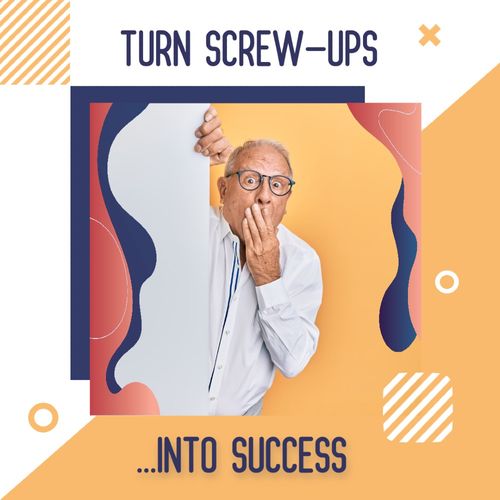Made a mistake? Own it. You’ll learn more and gain respect
Jul 18, 2021 · 2 mins read
0
Share

Mistakes can hurt like hell. It’s hard to be confronted by our own flaws, and seeing them reflected through the eyes of others can sting even more. But here’s how you bounce back even stronger...
Save
Share
Recognize that mistakes are a normal part of life. Without them, we wouldn’t learn anything. Sometimes mistakes are so big that they can’t be fixed easily. Sometimes a takeaway isn’t immediately clear. That’s perfectly normal, too.
Save
Share
The first step is acceptance. Screws-up don’t define you because you are not your mistake. Whatever may have happened, your intrinsic value as a human being is separate from it.
Save
Share
Own up to your mistake, quickly. Don’t try to justify it. (That’s just your pride talking.) Accepting full responsibility is the most effective way of disarming the situation.
Save
Share
Assess the consequences (if any) as objectively as possible. Not sure what you did wrong? Talk to someone who can help fill you in.
Save
Share
There’s a solution to most problems. Consider what you can do to improve or rectify the situation, then act on it. You may realize that it’s not as bad as you first thought.
Save
Share
Reflect. Ask yourself: “What could I have done differently? How can I make sure it doesn’t happen again?” This is an opportunity for growth.
Save
Share
If you’re worried about undermining your own reputation, just remember that nobody is perfect. When others know that you’re working on turning a negative into a positive, they can be more understanding than you might expect.
Save
Share
Don’t dwell on it. Open up about the issue with someone you trust, then move on as best you can. If you continue to ruminate on past mistakes, it could be a sign of a deeper issue worth exploring with a therapist.
Save
Share
Bottom line: Mistakes are going to happen. That’s just a rule of life. It’s all about how you recover from them. If you can gain some wisdom from whatever happened, you’ll be richer for the experience. Next time someone makes the same mistake, you may be the one they turn to.
Save
Share
0